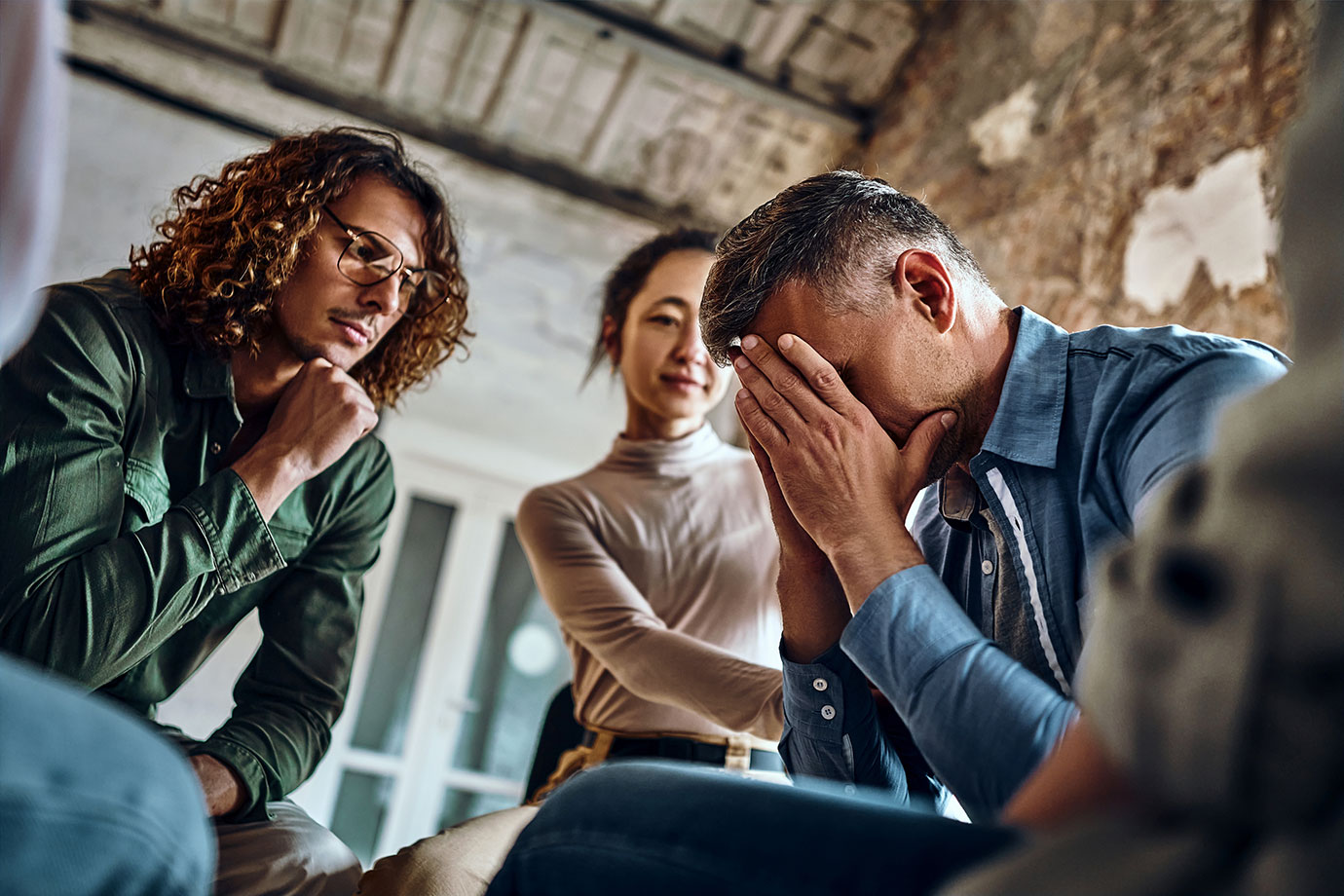Recognizing addiction
When is it recreational substance use, and when is it an addiction? Knowing the signs and symptoms of substance use disorder (SUD) can help you recognize when you or a loved one needs help.
Getting help
There are many ways to seek treatment. Many people who are actively using substances need to start with medical detox to start treatment completely clean. After detox, inpatient or outpatient treatment can help establish healthy behavioral patterns. Online treatment is a viable alternative if you need outpatient care without leaving home.
Paying for treatment
Some forms of drug & alcohol rehab can be expensive. Fortunately, there are many ways to pay for treatment. Long-term health insurance plans are required to cover at least some of the cost of mental health and substance use treatment. Some rehabs also offer scholarships, payment plans, or a sliding fee scale to make treatment more affordable.
Rehab aftercare
When treatment ends, your new life is just beginning. Aftercare support, such as sober living homes, 12-step or other recovery programs, support groups, and local recovery centers can help you find new friends and enjoy sober activities.

Addiction in the U.S.
The “war on drugs” has been going on for decades, and yet the epidemic of addiction not only persists but is worsening, as new and even more lethal substances continue to flood American cities, towns, and communities. The consequences of this are evident in the lives lost to opioid overdoses, a tragic reality that hits close to home for so many. Addiction in the U.S. is a crisis that requires immediate action to mitigate its impact and offer pathways to recovery for those in need.

Finding Free Resources
Despite the public’s increasing awareness of the devastating toll that addiction takes on individuals, families, and society, only a small percentage of people experiencing it actually seek treatment. More often than not, the barrier that prevents those in need of care from seeking help is the high costs associated with treatment. On our platform, you’ll find a wealth of free addiction recovery resources. We’re dedicated to breaking down financial barriers and empowering individuals on their journey to recovery.
Rehab Resources by State
Our platform is your guide to free addiction treatment resources in all 50 states. Whether you are located in a busy city or in a quiet rural area, we can assist you in finding help that’s close to home. Take that courageous first step towards a brighter future today.
Choosing the Right Addiction Treatment




Addiction FAQs
How Can I Tell If I’m Addicted to Drugs?
An addiction is marked by a compulsion to continue using a substance even when you know that it has a negative impact on your life. If you are engaging in actions that are causing a physical, mental, emotional, financial, educational, occupational, social, and/or legal problem, and you keep doing them regardless, you are probably dealing with an addiction. To be certain, you should speak to a healthcare professional and explain the symptoms you are experiencing.
How Can I Tell If My Loved One is Addicted to Drugs?
Each person’s addiction will be unique. Factors like the substance being used, the dosages being taken, and the length of time the addiction has been in place all affect the visible symptoms. However, people with a drug addiction typically become secretive, withdraw socially, fail to meet their obligations, and neglect their grooming and hygiene. By researching drug-specific signs and symptoms, you may be able to better identify a drug addiction. You can also ask you loved one about their substance use, but addicts often lie.
How Long Does Drug Rehab Take?
Drug rehab does not have a singular set length that is appropriate for all people. The most popular treatment durations are 28- and 30-day programs, but that is because these are the lengths most often covered by insurance. Many patients require additional treatment and they may remain in rehab for 60-, 90, or 120-days. Treatment outcomes will depend upon patients being engaged throughout treatment and remaining present until it comes to a close. Your individualized treatment plan will determine the proper length of rehab in your circumstances.
How Much Does Drug Rehab Cost?
The costs associated with rehab vary because they depend upon the type of treatment you choose to enter. Inpatient programs, for instance, tend to be more expensive than outpatient programs. There are free and low-cost programs run by non-profits and government agencies and these are inexpensive, but they lack amenities and have long waiting lists. Luxury rehabs, on the other hand, have luxurious amenities and beautiful settings, but they are quite expensive and tend not to be covered by insurance. However, the price of a drug addiction treatment program will always be less that the price of continued drug use.
How Will I Pay for My Addiction Treatment?
You have many options for covering the costs of rehab. You should first check to see if you have insurance coverage for substance abuse treatment, which can significantly lower or eliminate the fees you have to pay. In the absence of insurance coverage, you have multiple options to raise the funds yourself, including business loans, personal loans, selling assets, and crowdfunding. If you are still unable to pay for drug addiction treatment consider entering a rehab that offers a financing program with low interest and a deferment period.
What Happens After Treatment?
When you leave treatment, you will continue your recovery, as addiction is a lifelong disease that requires consistent management. Therefore, you will need to seek out counseling, support group meetings, and other resources to help you carry on making progress. Many rehab programs offer aftercare, which assists former clients of the program in accessing resources and continuing treatment. If your rehab offers aftercare, you may be able to keep seeing one of the staff counselors or continue attending 12-step meetings at the facility.
What Is Drug Rehab Like?
The drug rehab experience will be slightly different for every person because everyone is an individual and there is so much variation between rehab programs. An inpatient treatment center, for instance, will be a different experience than an outpatient one. However, no one has an easy time in drug addiction treatment. It is difficult and it takes a lot of hard work and a commitment to change. But, rehab is also totally doable. No matter how difficult it feels, people persevere every day.
What Should I Tell My Loved Ones If I Am Addicted?
The first thing you need to know is that they probably already have their suspicions. Even if you have been as secretive as possible, many of the signs are impossible to disguise. When you prepare the conversation, prepare for them to know about your addiction. Make a plan before you have what will be an emotional conversation. Also, research treatment beforehand so you can explain your recovery plan to them. With this information, they should be able to form a strong support system for you as you achieve and maintain sobriety.
Will I Lose My Job if I Go to Rehab?
There are legal protections in place to prevent employers from firing workers who choose to enter a drug addiction treatment program. For example, the Americans with Disabilities Act defines addiction as a disability. Therefore, recovering addicts require reasonable accommodations to attend support group meetings or go to rehab. You may also be eligible for an unpaid leave of absence under the Family and Medical Leave Act. Under this law, you can receive up to 12 weeks of unpaid leave to enter rehab without being terminated.
Harm Reduction Resources
Harm reduction sites share similar goals, but they vary in terms of size, formats, and services. Depending on what you need and what the law allows, you’ll find a range of programs to help your recovery.